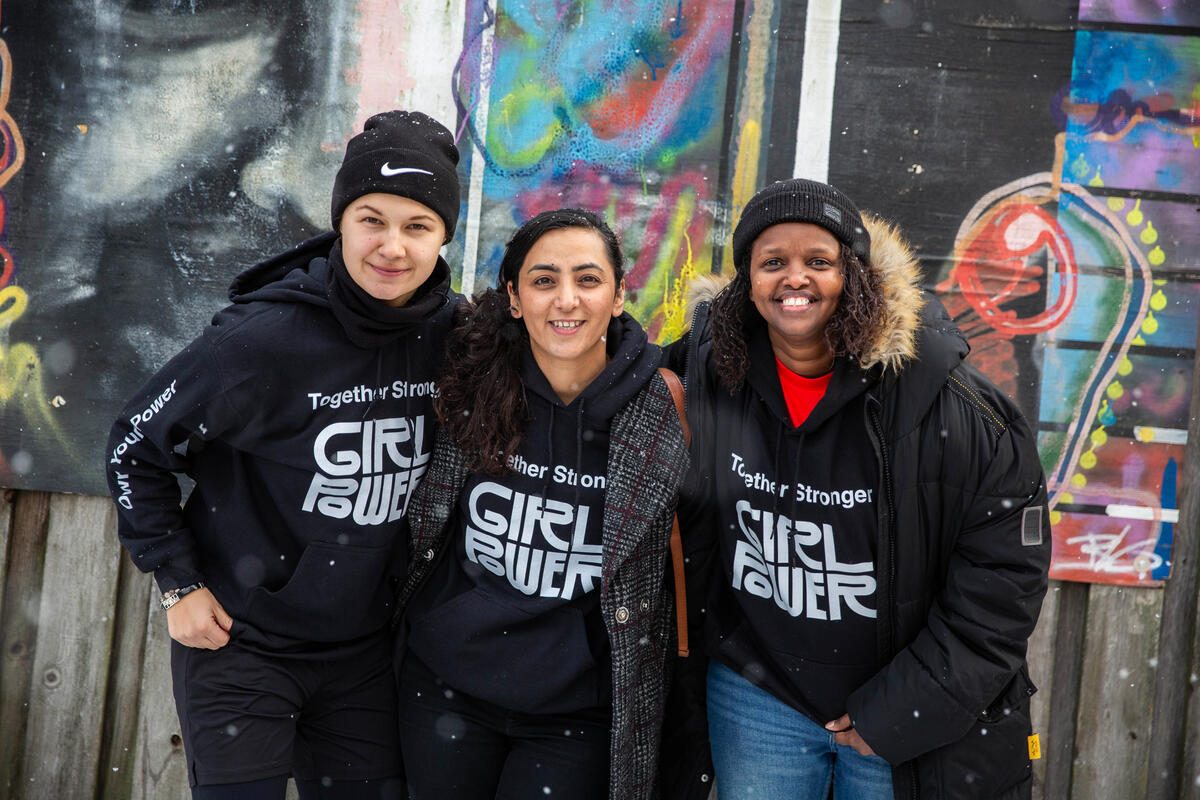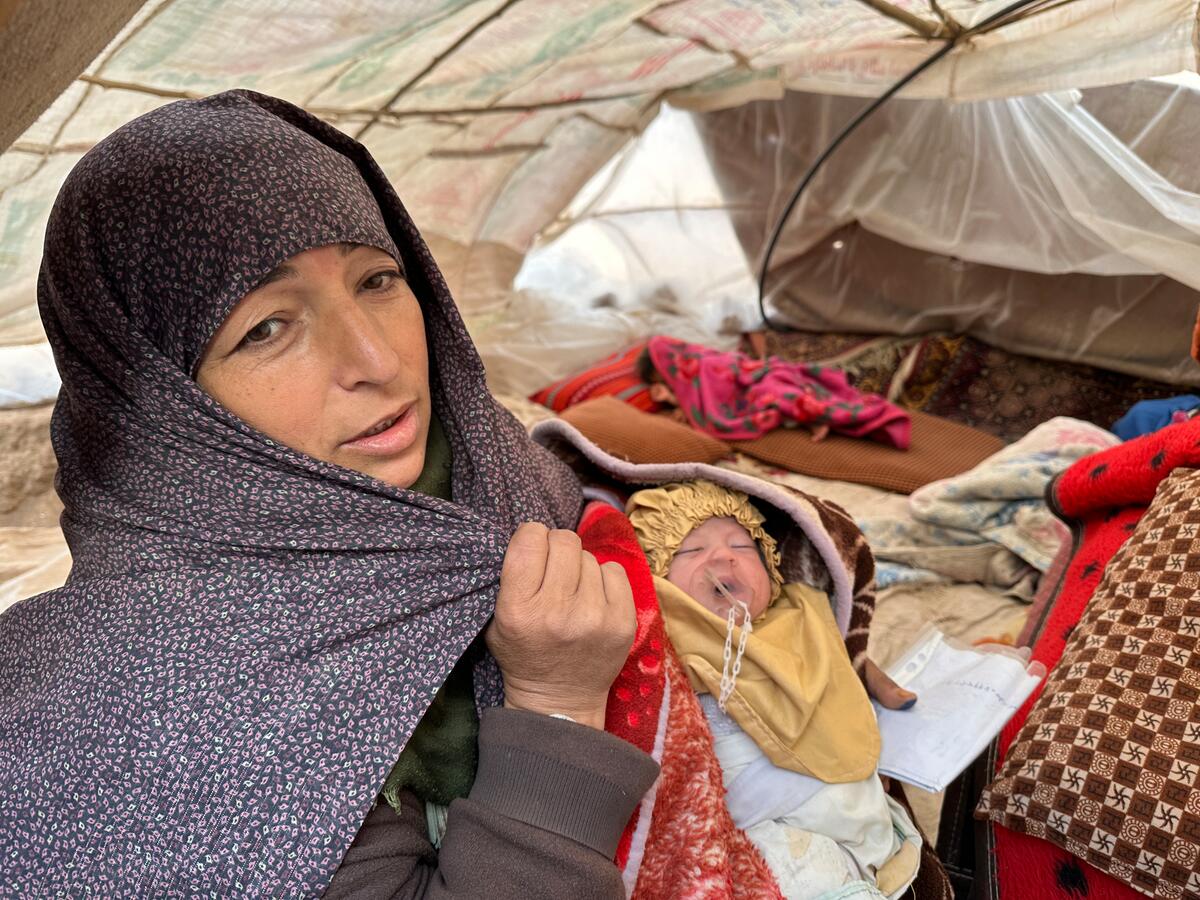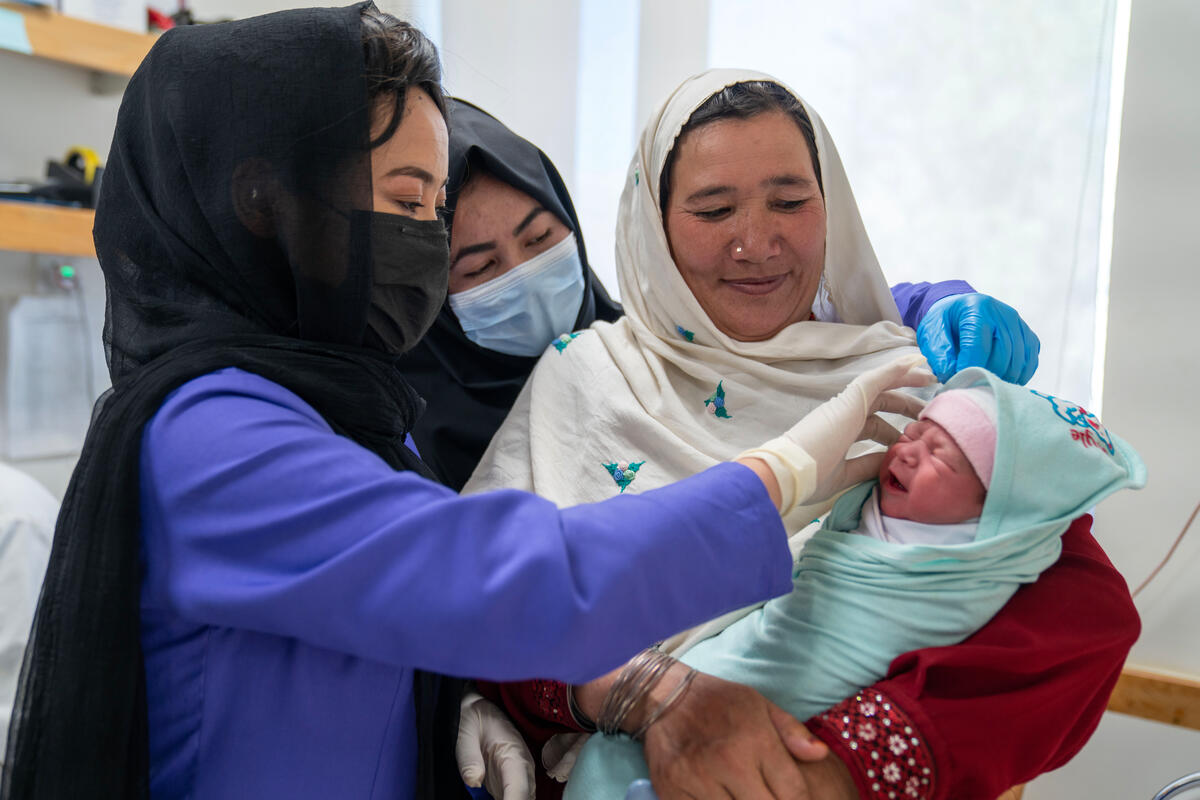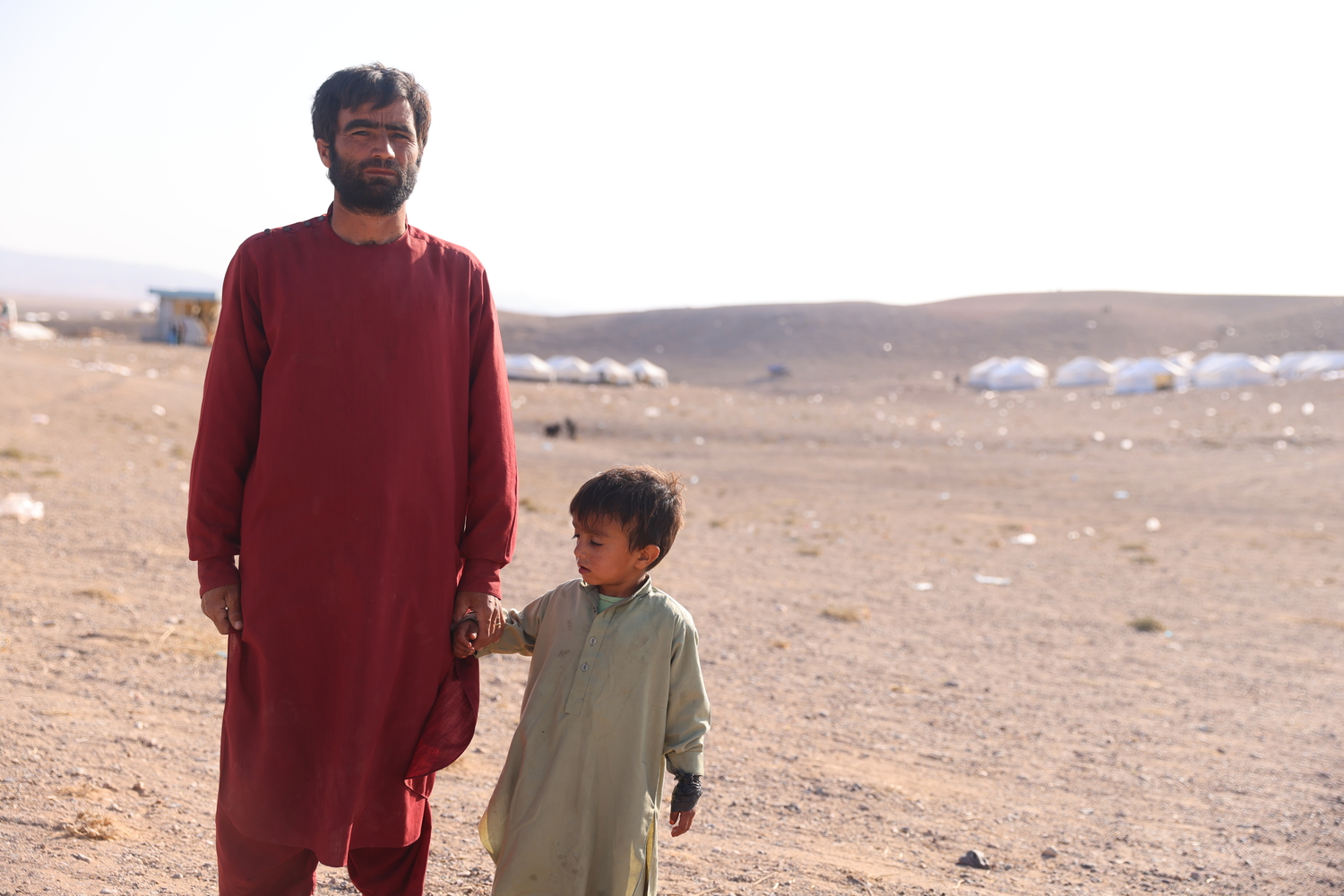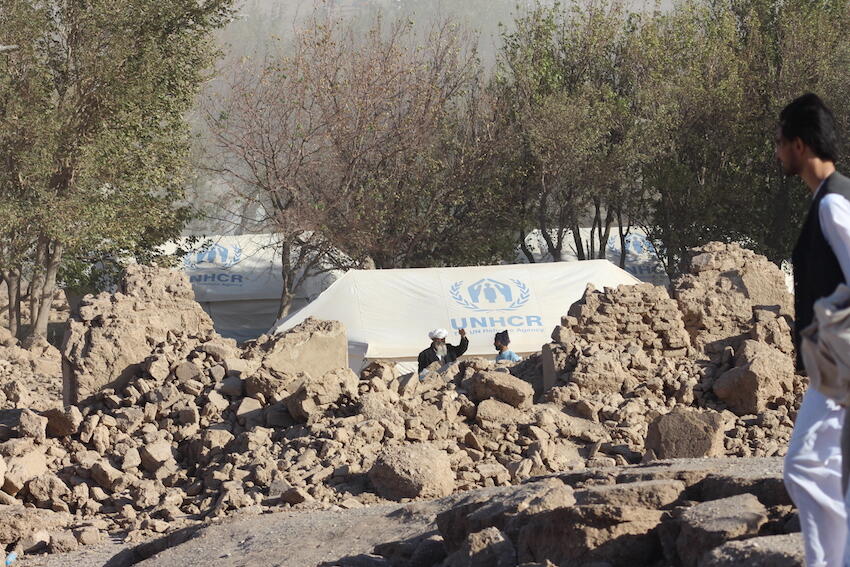Joint Communique: Issued by the UN High Commissioner for Refugees Filippo Grandi and Minister for States and Frontier Regions, Lt. Gen. (Retired) Abdul Qadir Baloch on the occasion of the UN High Commissioner's Visit to Pakistan
Joint Communique: Issued by the UN High Commissioner for Refugees Filippo Grandi and Minister for States and Frontier Regions, Lt. Gen. (Retired) Abdul Qadir Baloch on the occasion of the UN High Commissioner's Visit to Pakistan
1) This Communique is being issued in pursuance of the High Commissioner’s meetings with the President
of Pakistan, the Minister of Finance, detailed deliberations held with the Minister for States and Frontier
Regions, the Advisor to the Prime Minister on Foreign Affairs, the Advisor to the Prime Minister on
National Security, the Chief of General Staff, and the Chief Minister and Governor of Khyber
Pakhtunkhwa, as well as his interactions with Afghan refugees in Khyber Pakhtunkhwa.
2) The High Commissioner expressed his appreciation and solidarity with the Government and people of
Pakistan for having generously hosted one of the world’s largest protracted refugee situations for nearly
four decades, in line with the Islamic values of hospitality and generosity. He highlighted the important
contribution that Pakistan’s generosity has continued to make to regional stability, but also more broadly
to the global public good and the refugee cause, at a time when the world witnesses increased asylum
fatigue and pushbacks of refugees amidst unfolding humanitarian crises that have uprooted the largest
number of people in the recorded history.
3) The High Commissioner appraised the Government of Pakistan of his discussions with the Government
of Afghanistan and commended the ownership and commitment of the National Unity Government of
Afghanistan, at the highest levels, to finding solutions to the long-standing displacement issues. He
welcomed concrete steps taken to fulfill this resolve, such as the establishment of the High Commission
for Migration under the auspices of the President of Afghanistan and the endorsement of the
Comprehensive Voluntary Repatriation and Reintegration Strategy. The High Commissioner further
stressed the need to ensure effective implementation of the Strategy and welcomed the upcoming meeting
of the Tripartite Commission on Voluntary Repatriation, between the Governments of Afghanistan and
Pakistan and UNHCR which will further support this effort.
4) The international community has long recognized that voluntary return and sustainable reintegration of
Afghan refugees is critical for security and stability in the region and beyond. On the other hand, protracted
refugee situations that remain under-resourced have the potential to generate secondary displacement
within and beyond the sub-region. Against this background, the High Commissioner and Minister
SAFRON called on the international community to redouble their engagement in Afghanistan and support
the efforts of the National Unity Government at this critical juncture of its nation building and
reconciliation processes. Robust development initiatives aimed at creating conditions conducive for
sustainable reintegration in Afghanistan are vital to allow for inclusion, participation and active
contribution of returning Afghans, particularly the youth. Furthermore, the international community’s
collective engagement in closing one of the world’s most protracted refugee chapters can serve as an
inspiring achievement in an era when global displacement reaches an unprecedented scale.
5) Traditional approaches are no longer sufficient to address this protracted refugee situation, in view of
prevailing challenges in Afghanistan. As such, and in order to maximize the impact in an environment of
shrinking humanitarian resources, it is vital to pursue innovative solutions and creative joint advocacy and
resource mobilization.
6) Against this background, UNHCR will: i) double the existing individual assistance package for returnees
ii) upscale programs for host communities of Afghan refugees iii) support the Government of Afghanistan
in implementing its plans to create conditions conducive for sustainable return and reintegration in high
return areas. UNHCR will mobilize additional resources to implement the aforementioned.
7) Complementary to robust community based development initiatives in Afghanistan, the doubling of the
currently provided repatriation grant for returning Afghan refugees will help to support voluntary
repatriation and sustainable reintegration in Afghanistan, as the preferred solution and key objective of the
Solutions Strategy for Afghan Refugees which entered the second stage of its implementation in 2015-17.
8) The Government of Pakistan acknowledges that the status quo can no longer help address this protracted
situation and that durable solutions can only be achieved through comprehensive strategic planning which
enhances resilience and coping strategies with benefits for refugees, returnees and their host communities,
and enables sustainable voluntary return and reintegration. In this regard, the High Commissioner and
Minister SAFRON encouraged renewed commitment from humanitarian and development actors to
strengthen synergies and cooperation through joint planning and investments in national/local public
delivery systems in line with the Sustainable Development Goals and national priorities.
9) The Joint Government-UN Refugee Affected and Hosting Areas (RAHA) initiative has since its launch
in 2009 provided vital assistance to 10.6 million individuals, including both Afghan refugees and their
Pakistani host communities. The continued and reinvigorated support of the international community for
RAHA is an essential demonstration of tangible burden sharing and solidarity with the people of Pakistan
for hosting one of the world’s largest protracted refugee populations. To this end, UNHCR will pro-actively
engage and collaborate with development partners and collectively highlight the contribution of Pakistan
to the “global public good” and the need for commensurate support for host communities through upcoming
high-level international fora.
10) Against this background, the High Commissioner and Minister SAFRON called for robust and more
equitable responsibility-sharing and enhanced international support for Pakistan, especially in the area of
youth empowerment through education, skills and livelihoods, which is critical to build resilience and
social cohesion among the Afghan refugees and their host communities through investments in local
systems. This also constitutes an important investment in building the human capital of the Afghan youth,
empowering them to be agents of stability and progress and enhancing prospects for solutions.
11) Both parties reiterated that Pakistan has significantly contributed to the global public good and
accumulated a wealth of experience in addressing both situations of mass refugee influx and protracted
displacement. It is therefore in a unique position to contribute to the evolving global thinking on new
approaches to protracted displacement. The upcoming international fora will provide important
opportunities to further raise the protracted Afghan refugee situation higher on the international
community, acknowledge the immense contribution and experience of Pakistan as a principal host country,
and advocate for greater responsibility-sharing and support for both (i) solutions in Afghanistan and (ii)
support for host communities, pending return and reintegration.
12) It was agreed that budget cuts in UNHCR programme for 2016 will be minimized by a joint
rationalization process to ensure optimal resources for mandatory operations.

